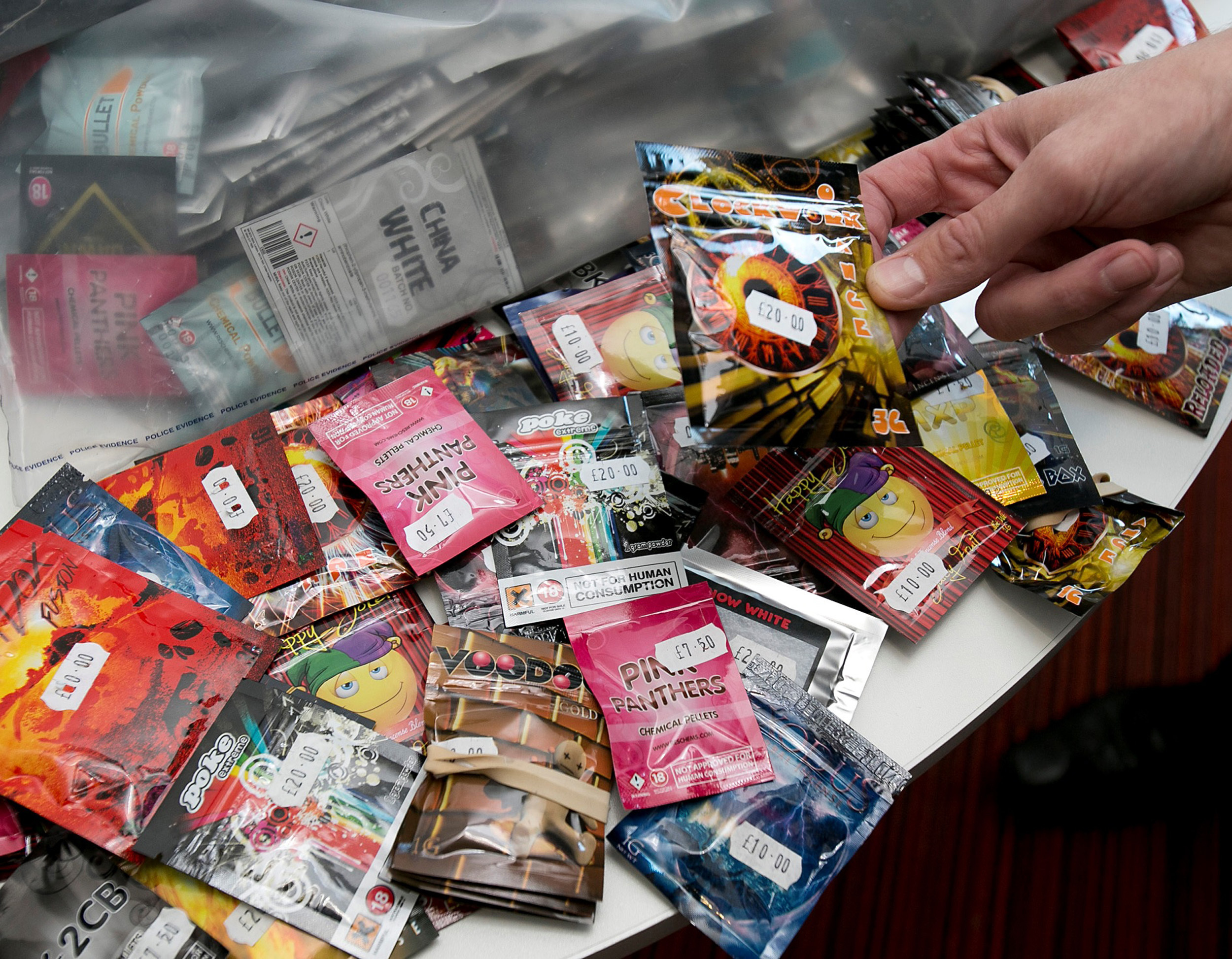Suppliers of so-called legal highs that mimic the effects of Class A drugs will now face up to seven years in prison after the substance was outlawed at midnight.
The blanket ban on previously legal highs now criminalises the production, distribution, sale and supply of the new psychoactive substances – or designer drugs which saw an explosion in popularity on the drug scene in around 2008 and 2009.
In Rochdale alone, nine people in the past week have fallen ill after taking the substance – including one 24-year-old man who remains in a critical condition in intensive care having suffered a cardiac arrest after taking a substance called Clockwork Orange.
The substances mimic the effects of “traditional” illegal drugs like cocaine, cannabis and ecstasy.
Greater Manchester Police (GMP) said it had been a “worrying development over a short space of time” and welcomed the new legislation which had been pushed back a month.
But questions have been raised over how far it will deter users with warnings that it could drive dealers on to the “dark web”.
Police will have new powers to shut down ‘headshops’ and UK-based online dealers, helping to protect potential users from harm and communities from anti-social behaviour.
Rochdale police confirmed that they had been called to deal with the “alarming” string of casualties between Friday and Tuesday following reports of the men collapsing
A criminal investigation is now under way following Friday’s casualties in which three men were taken ill and two men aged 34 and 61 remain in police custody on suspicion of possession with intent to supply class B drugs.
Superintendent Alistair Mallen, of GMP’s Rochdale borough, said: “This stuff will kill you. Even the package tells you how harmful and dangerous they are. The bottom line is ‘do not take it’.
“The circumstances speak for themselves, people have died from drugs like we know. Please do not take these legal highs – these are really dangerous.”
Mr Mallen added that some of the substances were stronger than Class A dugs and side effects can include profuse sweating, heart palpitations, psychosis and seizures.
Minister for Preventing Abuse, Exploitation and Crime Karen Bradley said: “Too many lives have been lost or ruined by the dangerous drugs formerly referred to as ‘legal highs’. That is why we have taken action to stamp out this brazen trade.
“The Psychoactive Substances Act sends a clear message – these drugs are not legal, they are not safe and we will not allow them to be sold in this country.”
The legislation has come under intense scrutiny since it was first proposed by the Government last year.
Ahead of the ban, a survey by the YMCA suggested that while overall usage is likely to decrease, around two thirds of young people who currently take the drugs are likely to continue using them in the future.
Meanwhile, there have been warnings that the ban could drive dealers on to the so-called “dark web” – unlisted websites that are difficult to trace.
Official analysis published last month found that deaths linked to so-called “legal highs” more than tripled in two years, with a total of 76 recorded in England and Wales over a decade from 2004.
Councillor Simon Blackburn, of the Local Government Association, said “legal highs” are a “scourge on society and shatter lives”.
He added: “We are aware of the risk that the sale of psychoactive substances will now move on to the ‘dark web’ – a network of untraceable online activity and hidden websites – and would welcome the Government putting additional resources into tackling the online threat.”
Edmund Smyth, criminal lawyer at Kingsley Napley, said police “have ever more stretched resources so questions remain about their ability to enforce the new regime effectively”.
He added: “Many have criticised this Act in draft stages – it may prove to be a sledgehammer to crack a nut and have unintended consequences. But it is here and carries serious consequences for those who fall foul of the new law.”
The new Act states that a substance produces a psychoactive effect “if, by stimulating or depressing the person’s central nervous system, it affects the person’s mental functioning or emotional state”.
A number of legitimate substances, such as food, alcohol, tobacco, nicotine, caffeine and medical products are excluded from the legislation.


